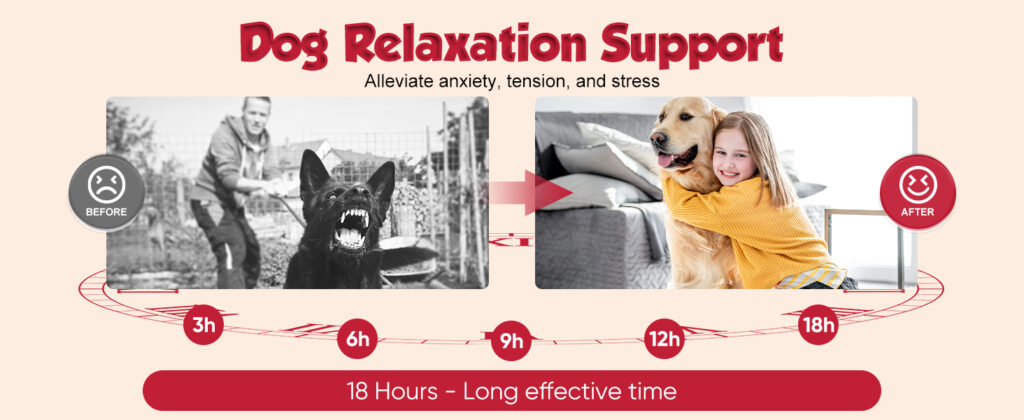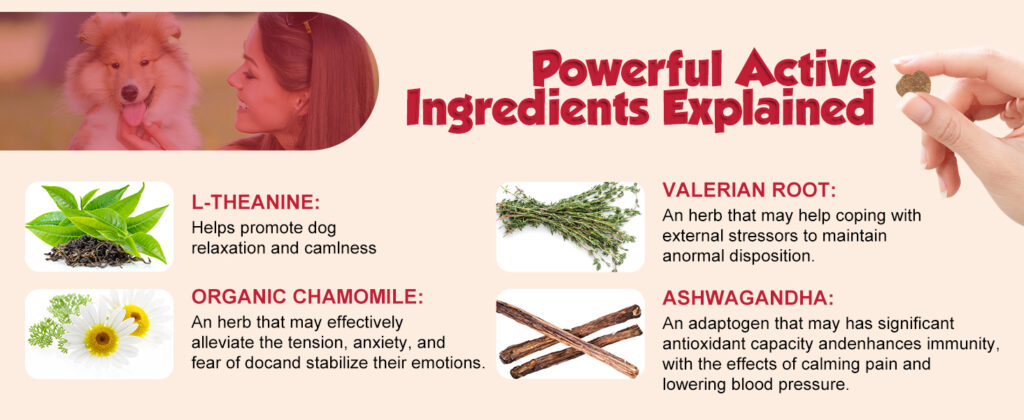Your cart is currently empty!
Canine Anti Anxiety Medication: Vet-Approved Options for Safe & Effective Relief
·
— Prescription Solutions, Natural Alternatives & How to Choose Wisely
When behavioral training and natural remedies aren’t enough to manage your dog’s anxiety, canine anti anxiety medication can be a lifesaver. From severe separation anxiety to noise phobia, these medications help dogs regain emotional balance. But with risks like sedation and dependency, how do you choose safely? This guide explores prescription drugs, natural alternatives, and vet-backed strategies to use canine anti anxiety medication effectively.

When Is Canine Anti Anxiety Medication Necessary?
Veterinary Guidelines for Medication:
- Severe Symptoms: Self-harm, aggression, or non-stop vocalization.
- Failed Behavioral Therapy: 6+ weeks of training with no progress.
- Medical Triggers: Thyroid disorders, neurological issues, or chronic pain.
Red Flags Needing Medication:
- Destructive escapes causing injury (e.g., broken teeth from crate chewing).
- Panic-induced vomiting/diarrhea.
- Aggression toward humans or pets during episodes.
4 Types of Canine Anti Anxiety Medication
1. SSRIs (Long-Term Management)
- Examples: Fluoxetine , Paroxetine.
- How They Work: Boost serotonin levels over 4–6 weeks.
- Best For: Generalized anxiety, separation anxiety.
- Side Effects: Lethargy, reduced appetite, liver strain (monitor bloodwork).
2. Benzodiazepines (Short-Term Relief)
- Examples: Alprazolam , Diazepam.
- How They Work: Activate GABA receptors for immediate calm during panic attacks.
- Best For: Fireworks, thunderstorms, vet visits.
- Risks: Dependency, overdose risk (strict dosing required).
3. Tricyclic Antidepressants (TCAs)
- Examples: Clomipramine, Amitriptyline.
- How They Work: Block adrenaline and serotonin reuptake.
- Best For: Mixed anxiety-depression cases.
- Side Effects: Dry mouth, urinary retention.
4. Sedatives (Situational Use)
- Examples: Trazodone, Acepromazine.
- How They Work: Reduce adrenaline to induce calm.
- Best For: Post-surgery recovery, travel stress.
- Risks: Low blood pressure, excessive drowsiness.
Vet Insight:
“SSRIs are my first choice for 70% of severe cases, but always pair them with behavior modification.” – Dr. Sarah Mitchell, DVM, DACVB

Natural Alternatives to Canine Anti Anxiety Medication
Top Non-Drug Options:
- L-Theanine Chews: Reduces cortisol spikes in 30 mins (safe for daily use).
- CBD Oil: 58% of dogs show improved relaxation in studies (Frontiers in Veterinary Science, 2023).
- Valerian Root: Mimics benzodiazepines’ effects without sedation.
Prescription vs Natural:
| Factor | Prescription Medication | Natural Alternatives |
|---|---|---|
| Speed | 30 mins–6 weeks | 20 mins–2 hours |
| Safety | Requires vet monitoring | Minimal side effects |
| Cost/Month | 50–50–200 | 20–20–60 |
| Best For | Severe, chronic anxiety | Mild-moderate, situational stress |
5 Rules for Safely Using Canine Anti Anxiety Medication
- Start Low, Go Slow: Begin with 25% of the target dose to assess tolerance.
- Never Mix Without Approval: SSRIs + Benzos can cause serotonin syndrome.
- Monitor Bloodwork: Check liver/kidney function every 6 months.
- Avoid Abrupt Stops: Taper off over 2–4 weeks to prevent withdrawal.
- Combine with Training: Meds manage symptoms; training fixes root causes.
Critical Mistake: Using human medications without veterinary dosing guidance.
FAQs: Canine Anti Anxiety Medication
Q: Can puppies take anxiety medication?
A: Rarely – most SSRIs require dogs to be 6+ months old. Use puppy-safe calming chews instead.
Q: Do anxiety meds change a dog’s personality?
A: Properly dosed meds reduce anxiety without dulling personality.
Q: How long do dogs stay on medication?
A: 6–12 months for SSRIs; situational meds (e.g., Trazodone) as needed.
Leave a Reply